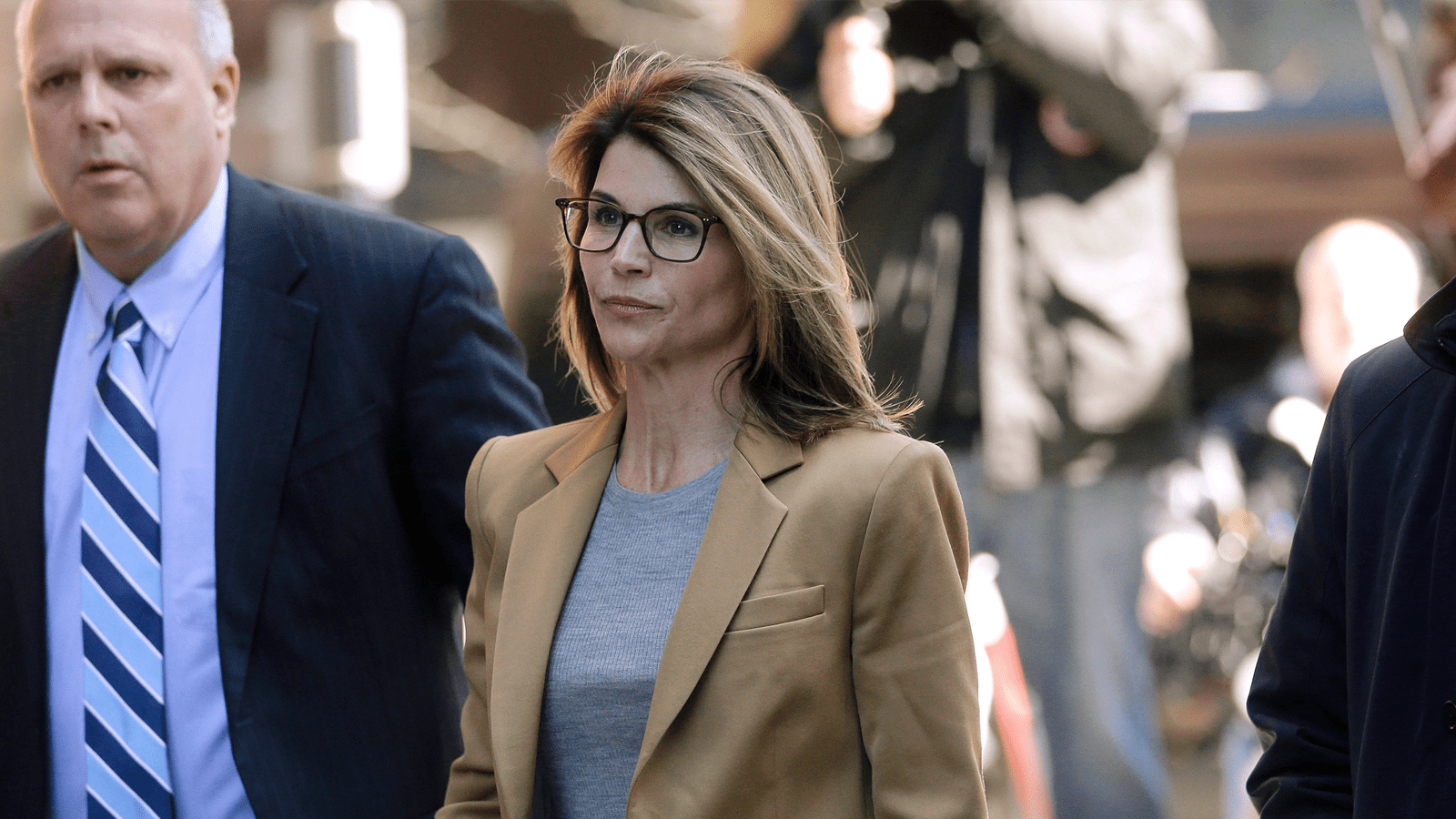
Get stories and expert advice on all things related to college and parenting.

Like many college parents, for more than a year and a half I’ve followed the news of the Varsity Blues college admissions scandal with both fascination and indignation.
A glimpse into the dark underbelly of a far-reaching criminal scheme naturally leads to many questions — and for me, some internal debate about whether I’d ever be tempted to do something similar.
Olivia Jade Giannulli, daughter of actress Lori Laughlin and designer Mossimo Giannulli, recently sat for her first interview since the scandal broke. (Both her parents pled guilty to fraud by “buying” her and her sister’s admissions to the University of Southern California. Laughlin was released from prison at the end of December while Giannulli continues to serve time.)
This was Olivia Jade’s first public explanation and apology for her participation in the scandal. And while it’s hard to feel much sympathy for her half-hearted admission of guilt — she maintains she wasn’t “100 percent sure of what was going on” at the time — I recognize that she was likely acting under a lot of pressure from her parents, who seemed much more eager for her to have a degree from USC than she was herself.
The details of the scandal, and Olivia Jade’s comments in particular, have caused me to do a fair amount of self-reflection surrounding my own experiences as a parent participant in a college admissions process that has become ridiculously bloated and overblown over the past decade.
When you you have a child who excels academically without much effort, the feedback and encouragement about their college potential starts early.
Looking back, I realize that casual comments from teachers and counselors impelled me to start gently pushing my daughter to craft an impressive college application from the time she was in middle school.
Those of us who buy into the college admissions arms race are buying into a cultural assessment of our parenting. An acceptance letter from a highly ranked school is today’s equivalent of getting an A grade on your Parenting 101 final exam. College acceptances are the last and supreme competition of childhood and, in many circles, proof that you are indeed a "good parent."
While my family never considered an illegal move like the Varsity Blues parents chose, and we don't have the means to make a big donation (historically one of the ways to get into some of the most prestigious schools), we did use what means we had to help my daughter gain admittance to a U.S. News Top 10 university.
By this I mean that we did the following things:
We also had the means to travel out of state for campus visits and to pay for many college application fees.
Like many upper-middle class families, we used our financial privilege to give her the best chance of gaining acceptances at top schools. Would we have gone even further if we'd had millions at our disposal? Or if our egos were on public display, rather than just subject to the judgments of extended family members and people in our local community?
Olivia Jade Giannulli, who is white, deliberately chose to discuss her experience with three Black women — actress Jada Pinkett-Smith and her daughter and mother, who host the “Red Table Talk” show on Facebook. Whether the racial justice events of 2020 played any part in her decision, or it was simply a PR move, I think white privilege is an important part of the wider discussion of college admissions in America.
In particular, I've thought about the white privilege aspect of college admissions and how my own upbringing affected my feelings about discrimination and affirmative action, and how those feelings have evolved over my years of adulthood and parenthood.
I was raised in a politically conservative household, headed by an immigrant father who rose from poverty and government assistance to retiring as a well-off man. He epitomized the “American Dream” and felt that anyone who worked hard like he had could achieve financial and career success.
He never acknowledged that his success was due in part to the fact that he was a white male. He raised his children to believe that everyone had the same chance of success if they studied and worked hard, no matter who they were.
When my own children were still quite young, my older nephews and nieces began applying to colleges. I remember one of my brothers-in-law remarking, when his daughter didn't get into a certain school, that “she would have been a shoo-in if she were Black.” I'm ashamed to admit that at that time I bought into the concept of reverse discrimination. How could schools be choosing students based on racial quotas and not on academic merit alone? How was that fair?
As the years passed, through education and new relationships, my horizons broadened and my beliefs and attitudes evolved. I began to see and understand how systemic racism affected people of color in our country, and how difficult it could be for many to achieve success, even if they worked just as hard — or harder — than white people.
I grasped how we as a society needed to offer more opportunities to those underrepresented in higher education. And as my own children entered high school, I witnessed just how complicated and expensive it was for a student to be competitive for admission into not just elite schools but most colleges.
Even if they didn’t get into a big-name school. But for so many students of color, that experience and those connections could be life-changing — not just for them but for future generations of their family.
Because we tend to think, erroneously, of success as a zero-sum game, it’s difficult for many white parents like me to reconcile wanting a greater good for society in general with not wanting to “give up” any opportunity or advantage for our own child. It’s a persistent struggle for those in a position of power and something we all need to personally reckon with.
I suppose there will always be those who try to use their privilege to work the system and gain unfair advantage when it comes to getting their kids into college. Higher education is big business and fairness has rarely been part of the equation, but I have hope that the Varsity Blues scandal will result in institutional safeguards that help prevent future instances of privilege winning out over equity.
College admissions is just a microcosm of our larger culture, and there is room for a great deal of introspection, innovation and improvement.